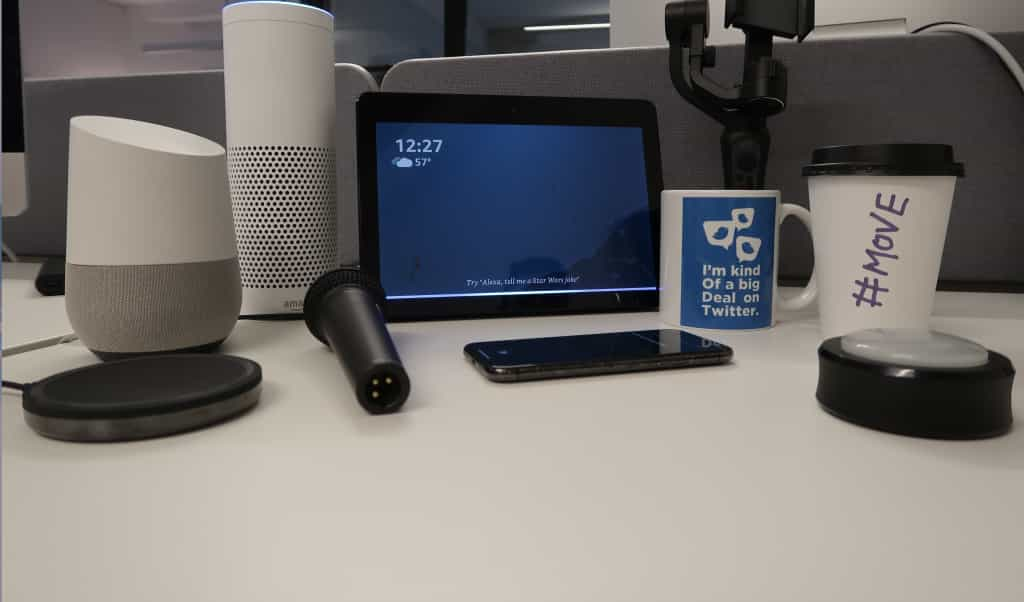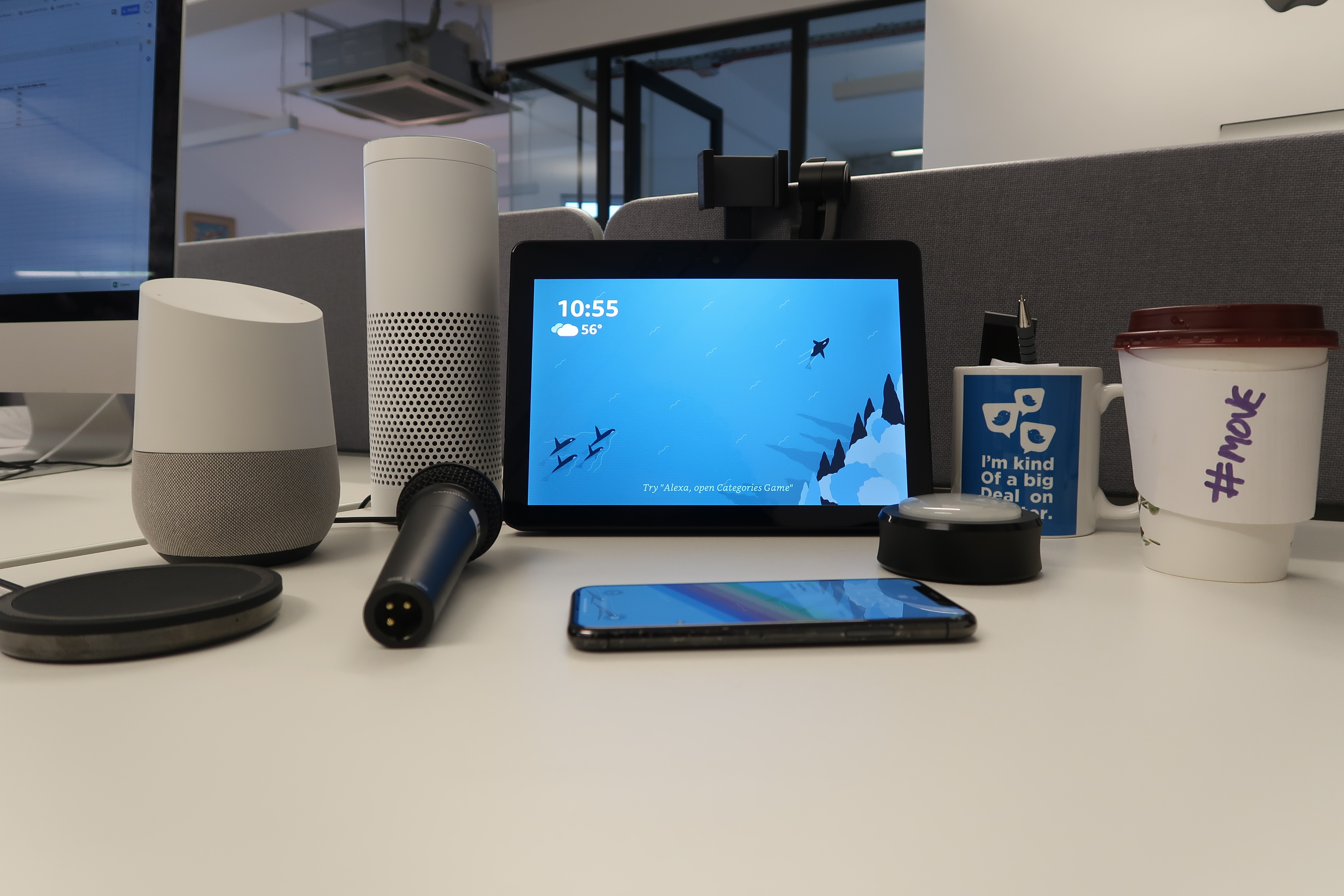If you’ve spent months of your life working on the Alexa Skill that’s going to revolutionise your industry, it can be frustrating to put it live and get precious few downloads in return. This is a problem faced by some Alexa Skill developers; they do amazing work creating Skills that will change the way we use tech, but they just can’t get people to use them.
This problem extends to the marketing departments of companies that commission Alexa Skills too. In 5 years’ time, marketing an Alexa Skill will be as ordinary as marketing an app, but in 2020, the process seems to have marketing departments and devs alike baffled. It doesn’t have to be this way. Here’s my definitive guide to getting your Skill noticed in 2020.
Don’t forget about SEO
No matter what product you’re marketing, you need an SEO strategy. Alexa Skills are no different. Chances are, there are people who want the functionality your Skill offers already, and they’re searching for it on Google. I could write a whole article – maybe even a book – on how to market your Alexa Skill via SEO, but here are four main steps to keep in mind; keyword research, audit, optimise, monitor.
Firstly you need to do some keyword research to find keywords related to your Skill that have a strong search volume. Then, using a tool like SEMRush or Screaming Frog, run an audit on your website. This will highlight a list of SEO issues that you need to fix. Next, using what you’ve learned from your keyword research and your audit, you need to optimise your website for the top keywords you’ve identified as targets. Once you’ve completed these steps, you then need to monitor your progress. Use SEMRush to keep an eye on your keyword rankings on a weekly basis to see how effective your strategy has been. If it’s not been as effective as you’d hoped, you need to go back to the previous steps and try and find a new solution.
Of course, there is much more to the process than this, I have done my best to simplify it for the sake of this article. So when you’re carrying out an SEO strategy for your Skill, make sure you read up on it before diving in, or hire an expert to help you through the process.
Voice SEO is the future
When you’re executing your SEO strategy, don’t forget to add voice into the mix. Your Skill exists on a voice platform, and you’re marketing to people who already have an Alexa device. It’s an absolute no-brainer that Voice should be part of your SEO strategy. The primary difference between traditional SEO and Voice SEO is the keywords used in each.
The way users search for information using voice and text are two very different things. Let’s say a user is looking for a Skill that helps them pick the perfect bottle of wine. A text search might look something like this; ‘wine alexa skill’. A voice search, on the other hand, might sound something like this; ‘Alexa, find me a Skill that helps me pick a bottle of wine’. Text keywords and voice keywords are very different, and if you want users to find your Skill, you’ll need to optimise your website for both.
A great hack is to create and FAQ page with long tail questions and answers.
Podcast Ads
Podcast listeners are a highly engaged, tech-savvy audience. Many even choose to listen to podcasts via Alexa, or another smart speaker. In other words, podcast listeners are a perfect audience to market your Skill to. The best thing about podcast advertising is that podcasting is a very niche medium. In the podcast world, shows that are about a very specific topic tend to become the most successful. Have a look at the charts on iTunes right now. Chances are that a lot of the top podcasts are about a very specific topic.
This means you can choose podcasts to advertise on that are a good fit for the product you’re selling. Sticking with our earlier example of a wine Skill, there are plenty of podcasts that have an audience who are highly passionate about wine. A quick Google search reveals that there are scores of podcasts specifically about wine. Any of these would be a perfect place to advertise a wine Skill.
So whatever your Skill might be, do some research and find some podcasts whose listeners might be interested in it. They will be a highly-engaged audience, who will be receptive to hearing about your Skill.
Social advertising
Social advertising is the best way of getting your product in front of people who want your product without them having to actively look for it. Also, the way that social ads are targeted is getting more sophisticated all the time. Using tools like programmatic advertising and lookalike audiences, it’s possible to use data to put your Skill in front of people who are similar to those who have downloaded it previously.
When creating a social advertising strategy, it’s important to consider which channels are right for your Skill. Do some market research and find out which platforms your target audience spend their time on. If you’re marketing to an older audience, you’re probably wasting your time advertising to them on Snapchat or TikTok. However, Facebook and Google Search ads would be a perfect fit for this demographic. Once you’ve done your research, remember to optimise your campaigns. If an ad set isn’t bringing in the downloads, switch it off and reallocate the budget elsewhere. It’s a lot of work, but this strict micromanagement of your budget will mean that you get far more bang for your buck.
Remember to keep up to date with the hottest new channels in the industry, and incorporate them into your strategy if they make sense for your Skill. The hot new thing in digital advertising at the moment is TikTok advertising, which is great for products aimed at a younger audience thanks to the platform’s younger demographic. Keep your finger on the pulse and don’t be afraid to try new platforms when they crop up. Typically the cost of advertising on newer platforms is lower, so you could really improve your ROI by taking a punt on the hot new thing.





